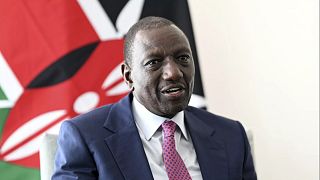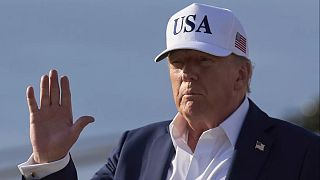Brazil
Janaína Silva’s 4-year-old son Murillo suffers from severe epilepsy, leading to frequent, prolonged convulsions.
After various medications failed, his paediatricians prescribed cannabis.
“The main improvement with the drug was the time of the seizures, which went from 5 minutes to seconds, 15, 30, 40 seconds,” says his mother.
A bottle of CBD oil costs $180, more than half her monthly salary, but now she pays nothing after Sao Paulo enacted a policy to provide free medical cannabis.
It is a step the federal government has failed to take, with legislation to regulate medical cannabis at a national level stalled in Brazil's Congress for years.
Sao Paulo, the country’s most populous state, home to over 44 million people, was the first to enact legislation making CBD available for free through the public healthcare system.
Centre-left state lawmaker, Caio França, drafted the law in 2019 after meeting a mother who struggled to secure CBD to treat her son.
He says he realised families needed help, particularly those unable to afford the medication, working for three years to convince his overwhelmingly conservative counterparts.
The bill passed in late 2022, with nearly two-thirds support from the state's legislature, and was signed into law in January 2023.
It is however restricted to patients with three rare medical conditions after the governor cited research showing they were the only ones where cannabis use was proven effective.
The law is, however, a win for Brazilian moms who have led a decade-long campaign to secure access for their sick children.
“If it hadn't been for mothers, we wouldn't have a state law that provides these products through SUS [public health system]. So, they are key players in this process, they were courageous, as every mother is with her child when they have no alternative,” says França.
One of the mothers leading the charge was Maria Aparecida Carvalho, whose daughter, Clárian, was diagnosed with Dravet Syndrome at the age of 10.
This severe form of epilepsy can cause cardiorespiratory arrests and lead to sudden death, and before starting on CBD, her seizures could last up to one hour.
Maria and her husband took turns sleeping for fear they could lose their child in the night.
In 2013, they heard of an American girl suffering from the same disease who became the global poster child for medicinal cannabis.
Maria was able to obtain some CBD months later, when her daughter's neurologist smuggled it inside her luggage when returning from an overseas trip.
Later on, with the help of a lawyer, she obtained special court permission to start growing marijuana in her backyard in Sao Paulo city.
She now produces the extract for her daughter and 200 other patients.
Existing legislation in Brazil allows the use of cannabis for scientific and medicinal purposes, but cultivating marijuana is still illegal.
This forces the industry to import the raw materials, such as cannabis oil, causing prices to rise dramatically, while use of medicinal cannabis is on the rise.
In 2023, more than 430,000 Brazilians received cannabis treatment, up nearly 130 per cent from the previous year, according to a survey by Kaya Mind, a business intelligence firm.













01:02
Togo: Amnesty International calls for end to use of force against protesters
01:12
Senegal: Ousmane Sonko's defamation conviction upheld by Supreme Court
00:54
African Human Rights court says it can hear case brought by DRC against Rwanda
Go to video
Mbappé sues PSG, alleges ‘moral harassment’ by former club
01:51
South Sudan launches military court to enforce accountability and justice
Go to video
INTERPOL seizes $65M in fake drugs, arrests 769 in largest-ever global crackdown